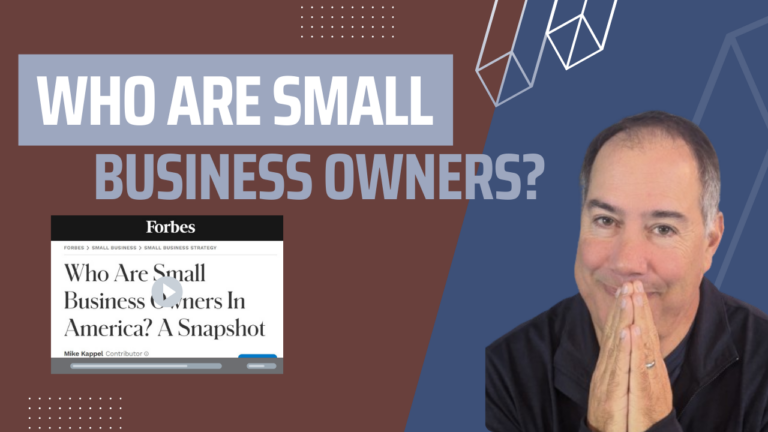10 Early Warning Signs That Your Business is Failing
It’s every entrepreneur’s worst nightmare: a failed business.
Unfortunately, that “nightmare” is all-too-common a reality for new business owners, as evidenced by a 2019 study showing that 11 out of 12 startups fail. Put another way, your chances of succeeding as an entrepreneur are a little less than one in 10. Ouch!
Of course, a big part of these kinds of stats is how you define “fail” and that does make a difference. These didn’t all fail in the spectacular, disastrous depressing way you imagine when you think of a “failed” business. Still, starting a business is unquestionably a risky proposition.
The good news is, odds can always be beat—as demonstrated by the many household names who have done so themselves. Think Oprah Winfrey, Jeff Bezos, Bill Gates, and Steve Jobs. If they can do it, you can do it too, right?
But just as important as learning from the greats is learning from the not-so-greats; those entrepreneurs who watched their dreams crumble to the ground. Their life lessons hold just as much value, so make sure you pay attention to the early warning signs that they missed.
1. Dwindling Funds
In the end, it always comes down to the numbers. And we’re not just saying that because we’re accountants; we’re saying that because it’s true!
Ask any business owner and they’ll tell you the same thing.
One of the earliest indicators that your business is going downhill is when you start to notice that your bank balance is shrinking instead of growing. Being short on cash is never a good sign.
That being said, it doesn’t necessarily spell doomsday. If you recently invested in new machinery or equipment, it makes sense that your balance is a bit lower than usual, so make sure you factor variables like this into account.
Solution: Keep a close eye on income and expenses from day one and make sure you’ve got a cushion built in for the slower times.
2. Sales Are Down
You started off the year hot, with $150k in sales in your first quarter. But now you’re nearing the bottom of the third, and you’re lucky if you pull in $50k. What went wrong?
Well, there are a few possibilities.
If you’re selling a seasonal product, it makes sense that sales drop off after a certain period. If, however, you’re selling an evergreen item, it’s time for further investigation.
Is there a new competitor in your space, one that is selling the same item (or similar) for a fraction of the price? Did you recently switch manufacturers, and the quality of your product took a nosedive as a result? Put your detective hat on and start asking the tough questions.
Solution: Know why your customers buy and be aware of anything that would cause them to slow down—competition, price changes from your suppliers, alternative products in the market, or changes in buying behavior. Don’t be caught by surprise by assuming what worked before will always work.
3. You’re Not Being Paid on Time
If you operate a business in which you give customers the option to pay over time, rather than 100% upfront, that’s great! Offering flexible payment plans allows you to attract customers you may not have otherwise acquired. However, like most things, it’s a double-edged sword.
On the one hand, extending a line of credit to your customers means you can charge interest, which can serve as an extra source of revenue. On the other hand, you risk delinquent payments, which can severely hamper your cash flow.
If you have a slew of customers who aren’t making payments on time, it’s time to sound the alarm.
Solution: Review your terms, speed up collection calls, be very careful offering credit, sell direct to the consumer, borrow against your A/R to cover short-term cash flow problems, and overall make sure you can handle the lag between your expenses coming due and you getting paid.
4. You’re Behind on Payments
If you’re struggling to pay your suppliers, distributors, creditors, or employees on time, then you’re in serious trouble.
Sometimes, this is a domino effect brought on by the previous point, wherein you’re not being paid on time so you can’t pay others on time. And as a result of being late, you’re now accruing late fees and interest charges—the next domino to fall. As you can see, it’s all downhill from there…
Solution: Work out terms with people you owe while they are still willing to work with you, avoid using credit until you’ve got the income to support it and a cushion to cover it. Don’t start out borrowing; wait until you don’t need to borrow and then it’s probably safe to start!
5. You’ve Reached Your Credit Limit
If all your credit cards are maxed out and you can’t find a bank that will grant you a loan, that’s a surefire sign that you’re on the brink of catastrophe.
Remember: debt itself isn’t necessarily a bad thing. It’s possible (and common, even) to leverage debt in such a way as to actually build wealth. However, when you’re struggling to make the minimum monthly payments and you’re relying on borrowed money just to keep your operation afloat, that’s when you know you’re in trouble.
Solution: Interest is expensive, so make sure you have the margin to cover interest and pay back debt well before you borrow any funds. Otherwise you’ll wind up on a treadmill you can never get off of.
6. Growing Number of Customer Complaints
It’s normal to have a dissatisfied customer here and there. In fact, we would argue that it’s inevitable (at least to some extent). As they say, you can’t please everybody.
If, however, you’re experiencing an increasingly high number of customer complaints, it’s time to start doing some digging. The first step is to identify what—specifically—customers are unhappy about. See if you can find some common themes.
For example, let’s say you sell clothing. In the past month, you’ve had 20 customers complain that the stitching from a shirt came apart after a single wash. Was it a bad batch? Is the material itself to blame? See if you can pinpoint the exact cause and fix it.
In an age where 97% of consumers base their purchases off of product reviews, negative feedback can (and will!) kill your business.
Solution: Take each complaint seriously and don’t just fix that one; figure out why they are happening in the first place and fix the real problem behind the complaint.
7. Key Customers Are Leaving
You’ve probably already heard of the 80-20 rule, but for those who haven’t, it goes like this: 20% of your actions drive 80% of your results. Put another way: 20% of your customers drive 80% of your business.
When you think about it that way, it’s easy to see why key customers leaving can quickly bring about the demise of your company. If there’s a mass exodus, that may very well be the beginning of the end.
Solution: Figure out if you can lure them back and check in with the ones who haven’t left to see if they are planning a move. Fix the reasons they might jump ship before spending more time selling new clients who are just going to leave for the same reasons.
8. High Turnover Rate
Employees come and go. That much is a natural part of the business cycle.
But if employees are leaving left and right, and you’re having to replace them every few months or sooner, something is a miss. Deeply amiss.
“Poor staff morale can be caused by a number of factors such as low pay, substandard working conditions, or ineffective management,” writes Piers Ede of allbusiness.com. “The result is low levels of productivity and high costs associated with recruitment and training.”
The solution? Invest in your employees like they are company stock, because they are in a sense! The more you put into them, the more they’ll give back. And keep in mind that the reverse is also true.
Solution: This almost always comes down to hiring the right person in the first place, setting realistic expectations, training them properly, and managing them fairly. In other words, treat them the way you’d want to be treated! If you would hate to work for yourself, why would anyone else want to do so either?!
9. One Problem After Another
If you’re feeling like you can’t catch a break—like it’s one problem after another with no end in sight—that’s how you know there’s a serious malfunction at the core operating level.
Sure, every business owner has problems, and like customer complaints, it’s inevitable to some extent. However, you should always aim for things to run as smoothly and efficiently as possible. When you’re encountering nonstop problems, it’s like a clog in your machine. And if you don’t fix it soon, it will slow things down to the point where you can’t make any progress.
Solution: Process, procedure, and documentation sound boring but they are what keep successful companies running smoothly. Invest some time in fixing the day-to-day stuff before focusing on growth and sales or those sales won’t last.
10. You’re No Longer Passionate About the Business
As sad as it is, the truth is, people fall out of love all the time. And we’re not just talking in a romantic sense.
You can have a fiery passion about an industry or business, but lose that spark after working in the field for several years. It’s called burnout. And it happens.
No, it’s not something you need to feel guilty about. And no, it’s not something you should grit your teeth and push through.
When you’ve lost that loving feeling, you either need to take a break or step down for good.
The best businesses are run with passion. It’s the fuel that lights the fire, so to speak. And without it, your dream will turn to ashes.
Solution: It’s easy to lose heart when the business is struggling. See if you can fix the business, and then the days won’t seem so bad when things are running right. And if you still decide to leave, at least you can do so on your own terms not because it all fell apart.
Conclusion
If you’re struggling with one or more of the issues above, we strongly suggest you take corrective action immediately. Seriously, we cannot stress the urgency of the matter enough, for the longer you wait, the worse it will get.
If you feel like you’re in over your head and could use some expert guidance, we’d be more than happy to provide you with a consultation. You can reach us at (858) 633-3573 or at info@capforge.com.
—
Pssst! Can we interest you in three FREE* months of QuickBooks Online? Fill out the contact form below to unlock this limited-time offer! *free months of QuickBooks Online dependent upon the number of months you sign up for our services.









